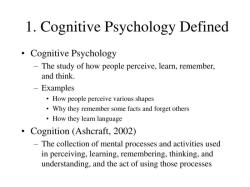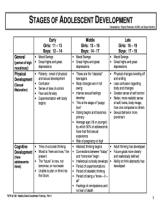What are qualities describe a pragmatic person?
Pragmatism is a philosophical approach that emphasizes practicality and real-world consequences in decision-making and problem-solving. When we describe someone as pragmatic in everyday language, we often refer to certain qualities or traits that align with this philosophy. Here are qualities that describe a pragmatic person:
Practicality:
- A pragmatic person is practical and down-to-earth. They focus on what works in real-life situations rather than relying on theoretical or idealistic considerations.
Problem-Solving Orientation:
- Pragmatic individuals excel at solving problems efficiently. They approach challenges with a goal-oriented mindset and seek solutions that are effective and feasible.
Realism:
- Pragmatism is rooted in realism. Pragmatic individuals have a realistic view of the world, acknowledging limitations, constraints, and the need to adapt to circumstances.
Flexibility:
- Pragmatic people are often adaptable and open to change. They recognize that circumstances can evolve, and they are willing to adjust their approaches and strategies accordingly.
Results-Oriented:
- Achieving tangible results is a priority for pragmatic individuals. They focus on outcomes and are willing to make decisions that lead to practical and measurable success.
Decision-Making Based on Evidence:
- Pragmatic individuals rely on evidence and facts when making decisions. They value data and information that can inform the most practical and effective course of action.
Efficiency:
- Efficiency is a key quality of pragmatism. Pragmatic individuals aim to achieve their goals with the least amount of wasted time, resources, or effort.
Open-Mindedness:
- While pragmatic people are practical and results-oriented, they can also be open-minded. They consider various perspectives and ideas if they contribute to achieving practical goals.
Prioritization:
- Pragmatic individuals are skilled at prioritizing tasks and goals. They focus on what is most essential and likely to yield the greatest impact.
Risk Management:
- Pragmatic people are not averse to taking risks, but they do so with a calculated approach. They assess risks, weigh potential outcomes, and make decisions that balance risk and reward.
Common Sense:
- Common sense is a hallmark of pragmatism. Pragmatic individuals often possess a good sense of practicality and common-sense reasoning in various situations.
Adaptability:
- Pragmatic individuals are adaptable to changing circumstances. They recognize the need to adjust plans and strategies based on new information or shifts in the environment.
Resourcefulness:
- Pragmatic people are resourceful and make the most of the resources available to them. They find practical solutions even when faced with limitations.
Straightforward Communication:
- Pragmatic individuals tend to communicate in a straightforward manner. They prioritize clarity and efficiency in their communication style.
Balancing Idealism with Reality:
- Pragmatic individuals can balance idealism with a realistic understanding of what is achievable. They seek solutions that are both effective and attainable.
It's important to note that pragmatism is a broad concept, and individuals may exhibit varying degrees of these qualities. People often integrate pragmatism into their decision-making style based on the context and specific challenges they face.
What traits define someone as pragmatic?
Here are some of the traits that define someone as pragmatic:
Focus on practical solutions and outcomes:
- Pragmatic people are more interested in finding solutions that work than in theoretical or abstract ideas. They are problem-solvers who focus on taking action and achieving results.
- They are realistic and recognize the limitations of what is possible. They are willing to compromise and make concessions to achieve a desired outcome.
- They tend to be adaptable and flexible, able to adjust their plans and approach as needed.
Emphasis on logic and reason:
- Pragmatic people make decisions based on evidence and logic rather than emotion or sentimentality. They are analytical and think carefully about the consequences of their actions.
- They are objective and unbiased, able to consider all sides of an issue before forming an opinion.
- They are also decisive and able to make decisions quickly and efficiently, even in difficult or uncertain situations.
Action-oriented and results-driven:
- Pragmatic people are not just thinkers; they are doers. They are motivated to take action and make things happen.
- They are efficient and organized, able to manage their time and resources effectively.
- They are also accountable and take responsibility for their actions and decisions.
Here are some additional traits that are often associated with pragmatism:
- Open-mindedness: Pragmatic people are willing to consider new ideas and perspectives, even if they challenge their own beliefs.
- Tolerance: They are able to accept differences in others and respect their opinions, even if they disagree with them.
- Humility: They are aware of their own limitations and are willing to learn from others.
- Sense of humor: They are able to see the lighter side of life and maintain a positive attitude, even in difficult situations.
It's important to note that pragmatism is not the same as being cold or uncaring. Pragmatic people can be compassionate and understanding, but they are also realistic and aware of the limitations of their own emotions and the emotions of others.
Overall, a pragmatic person is someone who is grounded in reality and focused on finding practical solutions to problems. They are logical, analytical, and results-driven, but they are also open-minded, tolerant, and humble.













